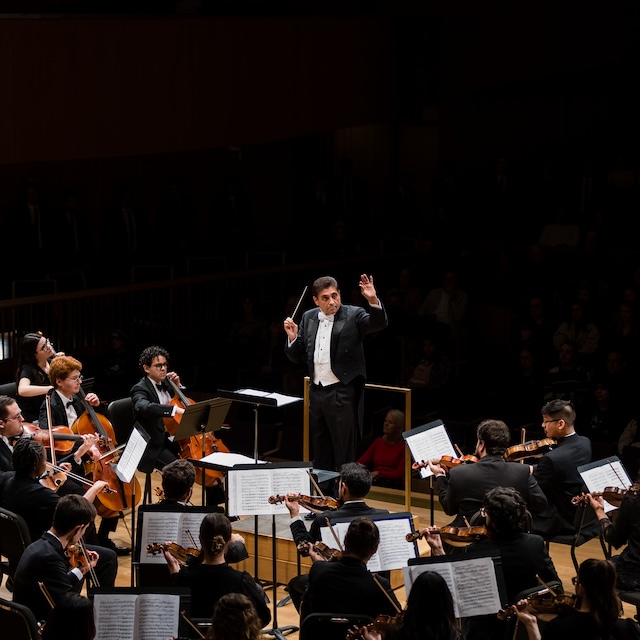Music
Expand your talent, develop your artistry and find your voice.

Turn your love of music into a career at TCU, where you can earn a degree in music with a concentration in brass, church music, music education, music theory/composition, organ, percussion, piano pedagogy, piano, strings, voice or woodwinds.
The TCU School of Music offers world-class musical opportunities with a 5:1 student-to-faculty ratio, which means you’ll get individualized mentoring from faculty and have ample opportunities to perform in a variety of ensembles. Faculty will challenge you to grow and excel personally and musically, preparing you to join the next generation of world-changing teachers, performers, scholars, composers and arts advocates.
We offer the Bachelor of Music degree with a major in performance in the following areas: organ, piano, piano pedagogy, wind and percussion instruments, strings, and voice.
Contact
music@tcu.edu
817-257-7232
Programs Offered
Sample Courses
- World Music for Music Majors
- Ear Training
- Symphony Orchestra
- Diction for Singers
- Instrumentation
- History of Sacred Music
- Survey of Opera Literature
View Courses & Degree Requirements

Core Curriculum
Your success is at our Core. TCU’s Core Curriculum prepares you to live and work in today’s ever-evolving diverse and global society. It encourages you to be intellectually curious and ask big questions about the world and your place in it.
Special Admission Requirements
There are special requirements for admission to the School of Music for undergraduate, graduate and artist diploma programs.
Our Faculty
Study with our 75 outstanding faculty members, as well as leading guest artists and scholars from around the world.
What Sets Us Apart
We host over 300 musical events each year, from annual festivals to guest artist recitals, so you can participate in a wide variety of performance opportunities.
You’ll have the opportunity to perform in the state-of-the-art Van Cliburn Concert Hall at TCU, named to honor the memory of the beloved concert pianist and Fort Worth legend.
The School of Music is an All-Steinway School, so you’ll play on the best instruments for the study of music.
Career Prospects
At TCU, you’ll graduate with the skills — collaboration, creativity, organization and leadership — to pursue a successful career inside and outside the arts. Some music graduates decide to attend law or medical school. Others continue their graduate studies at prestigious universities and conservatories across the country.
With a job placement rate over 90 percent, our graduates go on to succeed as public and private school teachers, church music directors, freelance musicians, arts administrators, music producers and professional musicians in symphony orchestras, chamber ensembles or opera companies.
Related Academic Programs
- Arts Leadership & Entrepreneurship Minor
- Brass
- Collaborative Piano
- Conducting
- Music Education
- Music Theory & Composition
- Musicology
- Organ & Church Music
- Percussion
- Piano
- Piano Pedagogy
- Strings
- Voice
- Woodwinds

John V. Roach Honors College
Exceed your own expectations. Incoming and current undergraduate students of every major may apply. Unique classes are offered which connects students with a varied curriculum that is stimulating, supportive and cross-disciplinary.